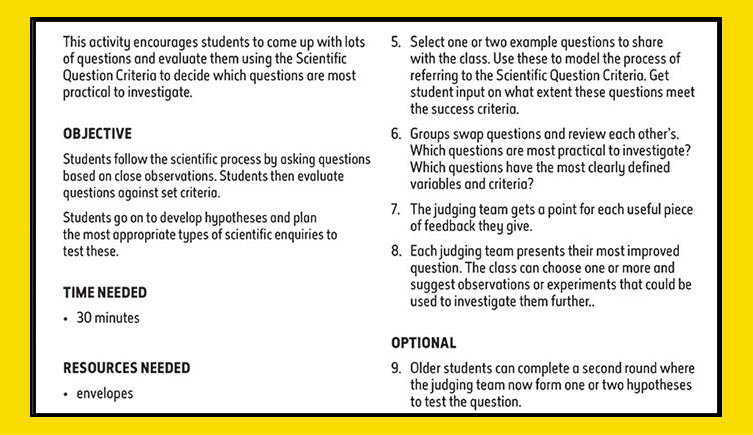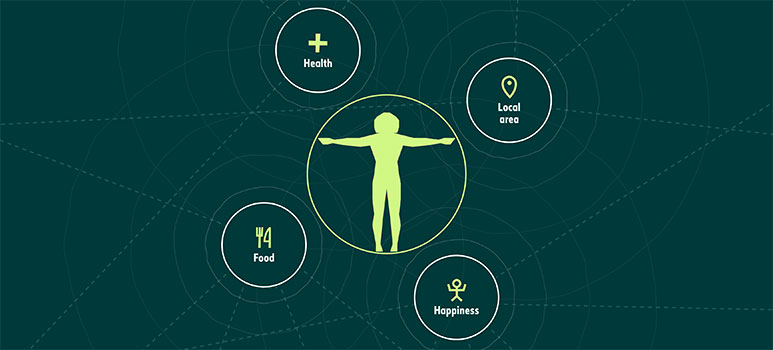About this resource
- Resource type: classroom activity
- Theme: Working scientifically
In this activity, students come up with lots of questions and evaluate them using the Scientific Question Criteria to decide which questions are the most practical to investigate.
Students follow the scientific process by asking questions based on close observations, then evaluate the questions against set criteria. They go on to develop hypotheses and plan the most appropriate types of scientific enquiries to test these.

Experimental skills and investigations
Scientific attitudes
Inquiry and Investigative Skills:
Plans and designs scientific investigations and enquiries:

Use our learning resources with your students to explore the nature on your doorstep and discover the challenges it faces.

Biodiversity is connected to almost every aspect of our lives, but it needs our help. Small actions can make a big difference.